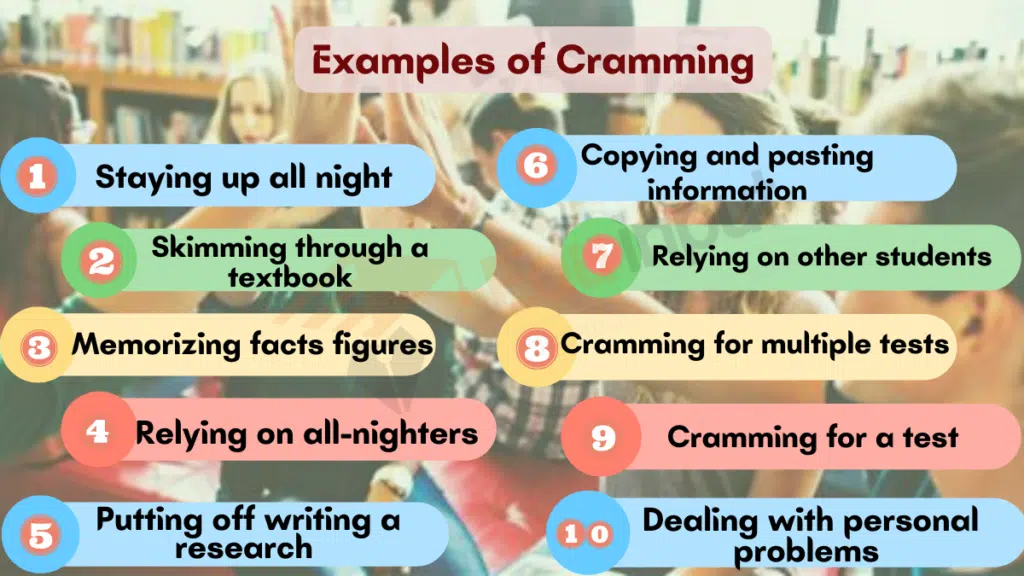10 Examples of Cramming in Students
Cramming is the act of trying to learn a large amount of information in a short period of time.
It is often done by students who have put off studying until the last minute. While cramming help students to pass a test, it is not an effective long-term learning strategy.
Here are 10 examples of cramming in students.

Examples of Cramming
1: Staying up all night before a test to cram
This is a classic example of cramming. Students who stay up all night to study often feel tired and stressed on the day of the test, which can make it difficult to perform well.
2: Skimming through a textbook or notes the night before a test.
This type of cramming is often ineffective, as students may not have enough time to fully understand the material.
3: Memorizing facts and figures without understanding the concepts behind them
This type of cramming may help students to pass a test, but they will likely forget the information quickly.
4: Relying on all-nighters to get through a semester
Students who frequently stay up all night to study are at risk of developing health problems, such as sleep deprivation and stress-related illnesses.
5: Putting off writing a research paper until the night before it is due
This type of cramming can lead to rushed and poorly written papers.
6: Copying and pasting information from the internet without understanding it
This type of cramming is plagiarism and can result in serious academic consequences.
7: Relying on other students to teach them the material the night before a test
This type of cramming is often ineffective, as students may not be able to fully understand the material from someone else’s explanation.
8: Cramming for multiple tests in a short period of time
This can be very stressful and can lead to burnout.
9: Cramming for a test while also working on other assignments
This can be difficult and can lead to students feeling overwhelm.
10: Cramming for a test while also dealing with personal problems
This can be very challenging and can make it difficult to focus on studying.



Leave a Reply